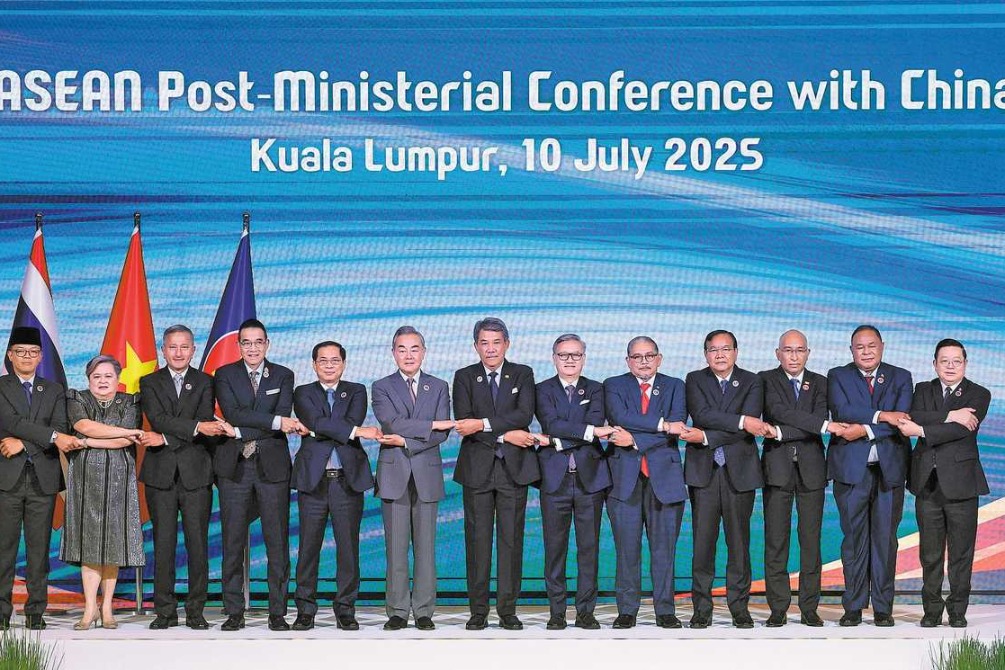Chinese firms play key role as Africa aims for economic rebooting


When China launched its acclaimed reform and opening-up policy in the late 1970s, part of the strategy was to encourage its enterprises to explore trade and investment opportunities abroad, and Africa was one of the places Chinese companies set their sights on.
Africa was characterized by weak industrial chains, poor infrastructure connectivity and high levels of poverty. The continent also presented less competition for Chinese companies, given that the few Western enterprises with footprints in Africa were more interested in resource extraction than sustainable economic partnerships.
Four decades down the line, private and State-owned Chinese enterprises have provided the linchpin for rapidly evolving and deepening cooperation with Africa. In 2000, the Forum on China-Africa Cooperation was established, and nine years later, Beijing overtook the United States to become Africa's largest trading partner.
In the two decades following the founding of FOCAC, trade between China and Africa grew twentyfold to hit $200 billion.
A new report by the China-Africa Business Council indicates that foreign direct investment in Africa by Chinese companies was valued at $56 billion at the end of 2020, with private enterprises accounting for 70 percent of that. Driven by market expansion, return on investments, industrial transfers and a search for resources, Chinese companies have made huge contributions to infrastructure modernization through the Belt and Road Initiative, jobs creation and industrialization.
The report builds on earlier surveys and studies that pointed to the role of Chinese companies in Africa's socioeconomic transformation. According to the Brookings Institution, for example, between 2014 and 2018, China's total FDI in Africa was $72.2 billion, compared with $30.9 billion from the US and $34.2 billion from France. During the same period, Beijing helped create 137,028 jobs in Africa, compared with Washington's 62,004.
Acknowledging China's strong role in Africa's trade, investment, infrastructure financing and aid portfolios, a 2017 report by McKinsey, which surveyed more than 1,000 Chinese enterprises, said that China's FDI in Africa increased by 25 percent between 2010 and 2014. The survey also found that 89 percent of employees in Chinese companies on the continent were African.
The China-Africa Business Council report comes amid unprecedented economic challenges for the continent as a result of the COVID-19 pandemic. Government revenues in Africa have dropped 25 percent, while more than 100 million jobs have been lost to the pandemic. There is therefore greater need for progressive economic partnerships with Africa's development partners to recover from the global health crisis.
Chinese companies are increasingly focusing on development cooperation in new fields, including high-tech manufacturing, pharmaceuticals and the digital economy. These new focus areas also hold great promise for rebooting Africa's economic vitality. Young Africans are looking for the connectivity that can fuel creation of virtual jobs, while pharmaceutical investments are expected to foster Africa's self-reliance in dealing with the current pandemic and any future ones.
Projects like Kenya's Konza Technopolis smart city, vaccine manufacturing in Egypt and Morocco, and joint efforts to cultivate digital security and governance capacity with different African countries are early outcomes of the new development approach.
Certainly, the success of Chinese companies in Africa has not come without intractable challenges. Planning and coordination shortcomings as well as inadequate international business experience and risk management capacity have dimmed the ability of the enterprises to operate optimally.
Africa is a compelling economic partner for China and other countries, even as the African Continental Free Trade Area takes shape. Improving intercultural communication while leveraging sustainable investment and financing models can help localize and give firm roots to Chinese companies on the continent.
The upcoming FOCAC summit provides China and its African partners with an opportunity to establish new partnership frameworks, which can expedite the achievement of shared development aspirations. It is clear that Chinese companies, especially private enterprises, remain important actors whose actions and synergy will fuel Sino-African ties for decades to come.
The writer is a scholar of international relations with a focus on China-Africa cooperation.































